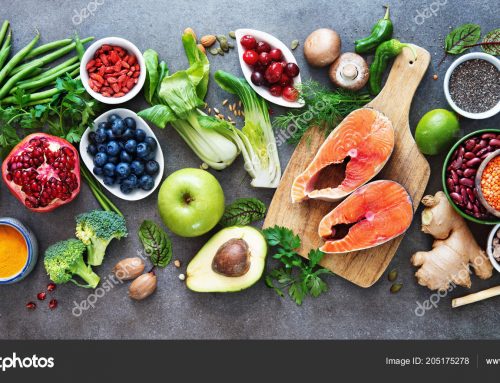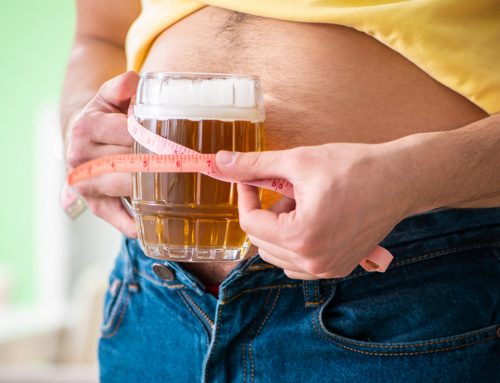
Ahhh, the fitness challenges facing the 50 and above: metabolism slows down, hormonal levels drop and muscle mass decreases.
And it’s a fact — we Boomers and Gen-X’ers become less and less active once we hit our 50s.
Combine that with joint pain, an old injury, sleep problems, or any kind of health issue — and trying to lose weight would seem almost impossible, if not absurd.
But consider the benefits of losing weight after 50 — it can prevent physical ailments associated with aging and, by extension, reliance on medication and treatments. It can spare us from constantly upgrading our wardrobes. And last but not the least, it’ll keep us looking and feeling younger than we actually are.
Reducing and keeping our weight to its ideal level will also promote a general sense of well-being, including emotional and psychological health.
Losing weight after 50 may be challenging — but certainly not impossible. It requires a combination of dietary and lifestyle changes that, with consistent, deliberate, and patient effort, will reap healthy and helpful rewards.
The following are our recommendations on the best ways to lose weight after 50:
1. Mind your food
Food choice really matters when it comes to weight loss. It’s important to be eating foods rich in essential vitamins, minerals, and nutrients, along with the necessary fiber and healthy fats.
Colorful vegetables and fruits top the list, as they’re not only rich in vitamins, minerals, and fiber — they’re also packed with antioxidants that prevent cell damage. Be sure to include them in your daily menu, and always begin consuming each meal with them.

Colorful vegetables and fruits top the list, as they’re not only rich in vitamins, minerals, and fiber — they’re also packed with antioxidants that prevent cell damage. Be sure to include them in your daily menu, and always begin consuming each meal with them.
Beans, legumes, and whole grains are also great fiber sources. They quickly provide a feeling of fullness, reducing the risk of overeating.
In addition, most produce are low in fat, sodium, and cholesterol compared to other food groups, so filling up on them won’t harm your weight loss program.
Meanwhile, proteins are essential for building lean muscle and speeding recovery after exercise. They build and repair bones, tissues, cartilage, organs, skin, hair, and nails. Proteins are also responsible for producing enzymes that aid in digestion and in making new cells.
To minimize fat and calories, opt for plant-based and lean protein like fish, skinless chicken breasts, turkey, beef sirloin, eggs, tofu, beans, lentils, and other legumes.
However, our individual protein needs vary according to our age, health condition, and lifestyle. Consult with your physician or nutritionist to find out exactly how much you need.
A rough but good guideline is filling half your plate with non-starchy veggies like leafy greens, broccoli, asparagus, bell peppers, celery, green beans, mushrooms, tomatoes, and cucumbers. Fill a fourth of the plate with protein-rich food like chicken, fish, eggs, or tofu. Then fill the remaining fourth with fiber-rich carbohydrates like fruit, beans, peas, lentils, whole grains, or corn.
It’s important to avoid the kind of carbohydrates that easily raise blood sugar like white bread, white flour pasta, and white rice – otherwise known as simple carbohydrates. When choosing your carbs, always prioritize those that are at the bottom of the glycemic index such as bran cereals, legumes, nuts, fresh fruits, and carrots.
For fats, go for the healthy kind: olive or coconut oil, avocado, nuts, seeds, and butter.
When craving for a snack, it’s a good idea to reach for roasted peanuts or fresh fruits instead of processed treats.
As much as you can, opt for whole, unprocessed foods. As we age, we can’t consume sugars, empty calories, food additives, and all sorts of chemicals the way we did when we were 20 or 30 — and still, expect our bodies to burn or flush them out just as easily. Losing weight after 50 will require you to say NO to junk food, desserts, sugary drinks, and fatty, processed foods like chips. Avoid those at all costs.
And remember, drink plenty of water. Staying hydrated not only helps with digestion and overall health; it also provides a feeling of satiety that tricks our brains into believing we’re full.
2. Balance your workouts
Combine your cardiovascular exercises with strength or resistance training. As we age, we lose substantial muscle mass. People normally experience a loss of 5% to 10% muscle mass each decade after the age of 50.
And losing muscle mass means having a slower resting metabolic rate, making weight gain a natural, almost unavoidable consequence. It’s very possible to be eating the same amount and kinds of foods you were eating when you were 30 or 40, yet gain so many unwanted pounds.

Strength training builds and maintains your muscle mass, helping you shed pounds over time since muscles keep burning calories even when they’re at rest. Resistance training also increases bone strength and density, as well as improves mobility.
Adding 15 to 20 minutes of resistance training to your daily workouts can do wonders for your strength, but also your physique. It will also reduce the boredom you may experience from your old, repetitive routines.
If you can’t put in those extra minutes every day, try lifting weights just twice a week for an hour, focusing on the major muscle groups. And consider working with a personal trainer to ensure you’re doing the right techniques and taking any necessary precautions.
Alternatively, you can do yoga, Pilates, tai chi, dancing, and stretches which are gentler, low-impact exercises to add more variety and fun to your workouts. They increase balance and flexibility while helping you to relax, de-stress, and get a better, lighter sense of well-being.
3. Try intermittent fasting
Restricting your mealtimes and caloric intake has a potential for many health benefits, too, including weight loss and reduced risk of various diseases.
When we fast, it leads to lower levels of sugar in the blood, and as a response, our body uses fat stores instead of glucose for energy.
A study found that an 8-hour restricted feeding resulted in mild weight loss without calorie counting.

You can try fasting 16 hours daily, taking your meals only between 9 a.m. and 5 p.m. Or fast only two days a week, eating just 400-500 calories per day.
But talk to your physician first, especially if you need to be drinking medications with your food, are taking heart or blood pressure medicines, or managing diabetes.
4. Stay Active
Being active throughout the day is key to slowing the physical decline associated with aging. Constant physical activity improves our strength, agility, flexibility, and ability to perform everyday tasks. It also helps us maintain weight and energy levels, all the while preserving bone mass and lean muscle.

So get going with those chores. And don’t neglect tasks you used to do when you were younger and more sprightly: gardening, raking, washing the car, walking the dog. Even less taxing activities like weeding, preparing a fancy meal, and taking leisurely strolls will go a long way. The idea is to ditch sitting all day and spending more time on your feet, moving around.
Stand while talking on the phone or watching the news. Take the stairs instead of the elevator. Park a little farther from the entrance each time you go shopping. The more we move, the more we burn fat.
5. Get enough sleep. Regulary
Sleep facilitates muscle repair. When we’re deprived of sleep, the hormones responsible for regulating our appetite are disrupted. These are the fat-burning and appetite-suppressing hormone leptin, and the hunger-stimulating hormone ghrelin. Our body tends to confuse fatigue with hunger, causing us to overeat and crave foods high in calories and fat. One thing then leads to another — lack of sleep makes us sluggish the next day, thus leaving us even less inclined to move around.

Research shows that people who are overweight and obese regularly get less sleep than those of normal weight.
So, to keep your energy at optimum levels, and prevent your hormones from getting out of whack, try getting 7 to 9 hours of sleep nightly.
6. Burn fat in your sleep
Having problems getting good-quality sleep? Unable to exercise due to health issues and other constraints? Maybe getting enough nutrients from the right foods is a huge challenge.
There are ways to achieve optimum health and lose weight after 50 — even if you’re unable to follow the above recommendations.
Taking dietary and fat-burning supplements is an excellent option. Supplements work by reducing your appetite and boosting metabolism, helping you burn more calories — yes, even while you sleep.

They also supply important minerals that have healing properties, key ingredients that aren’t easily obtained from regular food in the North American diet.
While supplements aren’t designed to replace physical activity and good nutrition, they do help by speeding up any weight loss program, making it more manageable, sustainable and attainable — even for those who may be impeded by certain conditions or situations in their lives.

